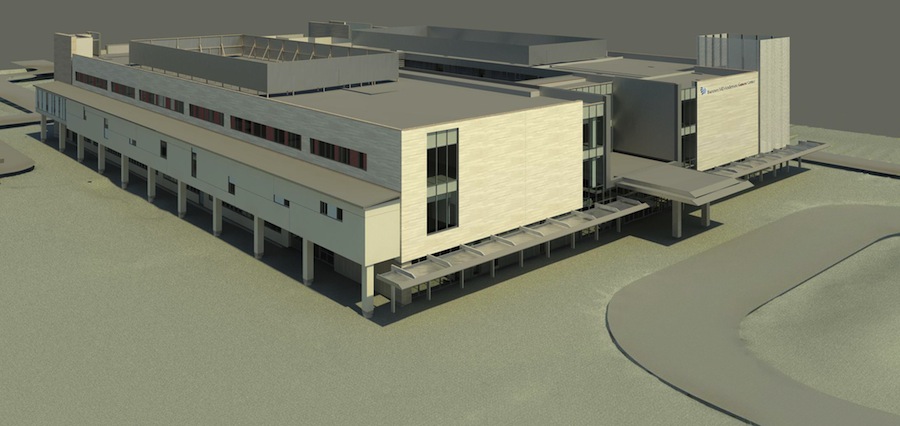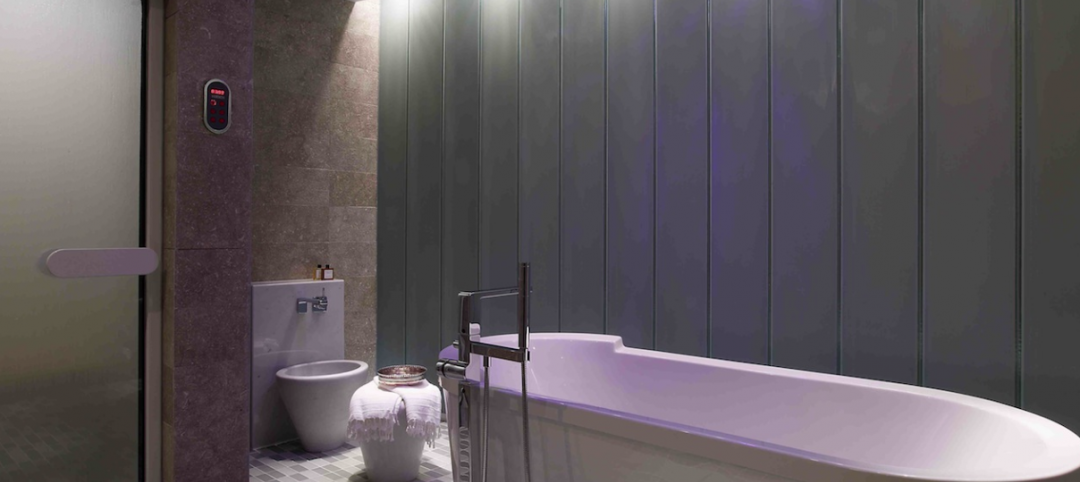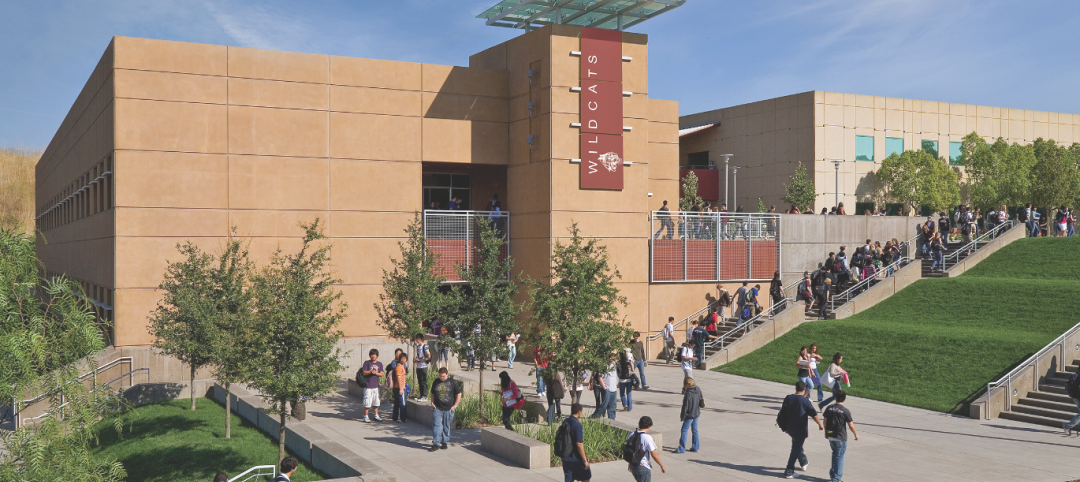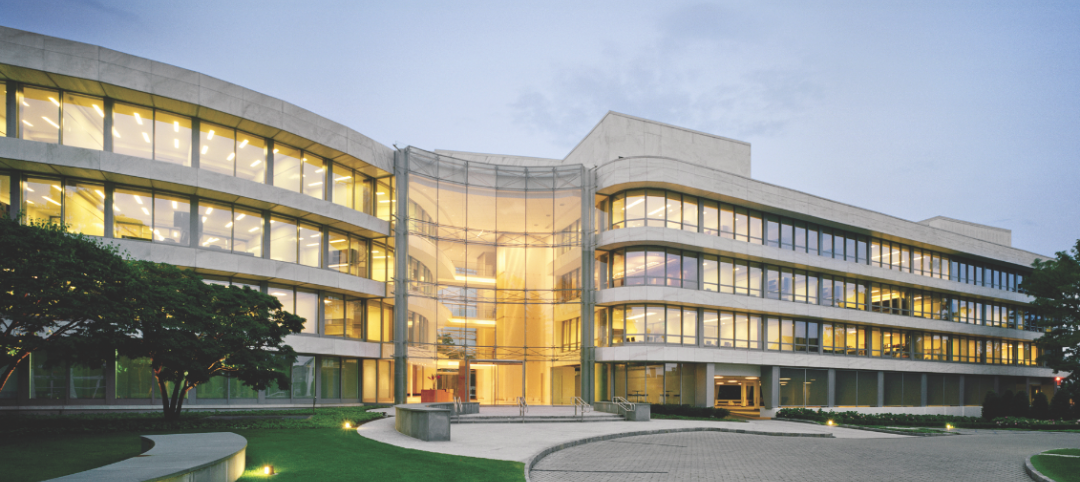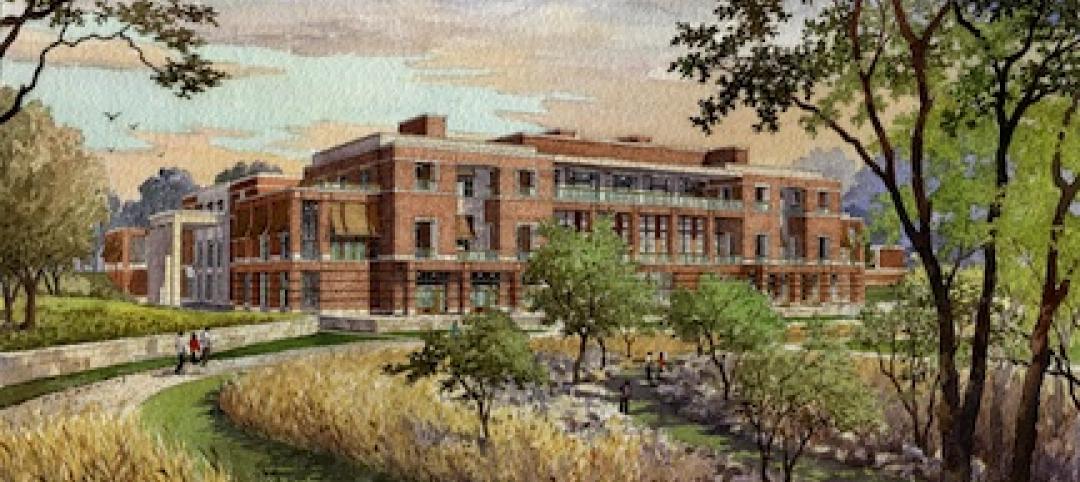Background
HKS, one of the top architectural firms practicing worldwide, specializes in healthcare, education, sports and hospitality design. The firm recently completed the design of phase two of the Banner Health MD Anderson Health Center in Gilbert, Arizona. This three-story, 110,000-square-foot facility provides additional space on the Banner Gateway Medical Center’s campus, which offers state-of-the-art, comprehensive cancer care. Banner Health selected HKS not only for their extensive experience in healthcare design, but also to work collaboratively with all project partners to digitize communication and deliver the facility using IPD.
Challenge
In order to meet the Owner’s IPD goals, HKS needed to digitize and streamline the flow of information to all team members. In the past, the firm had used a combination of solutions to electronically share and review drawings. However, the project’s General Contractor, DPR Construction, suggested the team use Bluebeam Studio throughout design, bid and build. Studio is the online collaboration feature of Revu, a PDF-based markup and collaboration solution that enables users to review large format drawings, redline them with customizable markups, track feedback and collaborate on PDFs with others in real time. Since HKS had already been using Revu’s PDF markup capabilities on other projects for over a year, it made sense to use Studio to host document-based collaboration sessions to foster greater collaboration among the entire project team.
Using Revu for IPD
Though HKS was no stranger to technology, using Revu enabled the firm to improve their workflows in several ways. Revu’s PDF markup technology, which includes customizable annotations such as text, highlights, pen marks, callouts, clouds, CAD symbols and measurements, took electronic commenting to the next level. In addition to providing the team with the ability to redline PDFs, Revu’s exclusive Tool Chest allowed users to save custom markups and easily standardize markup types, fonts and colors. The Markups list, which tracks every comment placed on the PDF, also enabled HKS to keep tabs on who made comments and when, and provided a simple interface for replying to comments.
Additionally, Revu enabled HKS to promote collaboration between multiple parties. By using Bluebeam Studio, HKS held online collaboration sessions with consultants, the GC and Owner. Through Studio Sessions, the team reviewed and redlined a single copy of the same PDF, which was hosted online. Everyone could see each other’s markups, but nobody could change anyone’s comments but their own. The timing of these collaboration sessions was flexible – sometimes the team members met together in real time despite their remote locations, and other times they logged in separately. “On previous projects that didn’t use Revu or Bluebeam Studio, we would have to send multiple versions of drawings from each person and filter through repetitive comments,” said Deva Powell, AIA, LEED AP, Project Architect at HKS. “Studio let everyone view and respond to each other’s comments so it was easy to see who needed to complete a task.”
Results
Using Revu and Bluebeam Studio for IPD was a huge success for HKS and its project partners. In addition to enabling real-time, document-based meetings, Revu eliminated significant paper waste. All project submittals were electronic, and since the Town of Gilbert, Arizona also uses Revu for electronic plan check, the team was able to digitally submit plans for approval.
Compared to solutions that HKS had used in the past for electronic communication, Revu proved to be much more efficient. “The combination of Revu and Bluebeam Studio helped HKS significantly improve the clarity and speed of project communication for the Banner Health MD Anderson Health Center Project, and reduce our printing and shipping costs,” added John Niziolek, AIA, LEED AP, Senior Vice President and Associate Principal at HKS. “We have already begun using Revu on other projects, and our clients are amazed at how quickly we can document items and send updates.”
To learn more about Revu or download a free 30-day trial, please visit us here.
Related Stories
| Dec 2, 2010
GKV Architects wins best guest room design award for Park Hyatt Istanbul
Gerner Kronick + Valcarcel, Architects, PC won the prestigious Gold Key Award for Excellence in Hospitality Design for best guest room, Park Hyatt Macka Palas, Istanbul, Turkey. Park Hyatt Maçka Palace marries historic and exotic elements with modern and luxurious, creating a unique space perpetuating Istanbul’s current culture. In addition to the façade restoration, GKV Architects designed 85 guestrooms, five penthouse suites, an ultra-hip rooftop bar, and a first-of-its-kind for Istanbul – a steakhouse, for the luxury hotel.
| Dec 2, 2010
U.S Energy Secretary Chu announces $21 Million to improve energy use in commercial buildings
U.S. Energy Secretary Steven Chu announced that 24 projects are receiving a total of $21 million in technical assistance to dramatically reduce the energy used in their commercial buildings. This initiative will connect commercial building owners and operators with multidisciplinary teams including researchers at DOE's National Laboratories and private sector building experts. The teams will design, construct, measure, and test low-energy building plans, and will help accelerate the deployment of cost-effective energy-saving measures in commercial buildings across the United States.
| Nov 29, 2010
Data Centers: Keeping Energy, Security in Check
Power consumption for data centers doubled from 2000 and 2006, and it is anticipated to double again by 2011, making these mission-critical facilities the nation’s largest commercial user of electric power. Major technology companies, notably Hewlett-Packard, Cisco Systems, and International Business Machines, are investing heavily in new data centers. HP, which acquired technology services provider EDS in 2008, announced in June that it would be closing many of its older data centers and would be building new, more highly optimized centers around the world.
| Nov 29, 2010
New Design Concepts for Elementary and Secondary Schools
Hard hit by the economy, new construction in the K-12 sector has slowed considerably over the past year. Yet innovation has continued, along with renovations and expansions. Today, Building Teams are showing a keener focus on sustainable design, as well as ways to improve indoor environmental quality (IEQ), daylighting, and low-maintenance finishes such as flooring.
| Nov 29, 2010
Renovating for Sustainability
Motivated by the prospect of increased property values, reduced utility bills, and an interest in jumping on the sustainability bandwagon, a noted upturn in green building upgrades is helping designers and real estate developers stay busy while waiting for the economy to recover. In fact, many of the larger property management outfits have set up teams to undertake projects seeking LEED for Existing Buildings: Operations & Maintenance (LEED-EBOM, also referred to as LEED-EB), a certification by the U.S. Green Building Council.
| Nov 23, 2010
The George W. Bush Presidential Center, which will house the former president’s library
The George W. Bush Presidential Center, which will house the former president’s library and museum, plus the Bush Institute, is aiming for LEED Platinum. The 226,565-sf center, located at Southern Methodist University, in Dallas, was designed by architect Robert A.M. Stern and landscape architect Michael Van Valkenburgh.
| Nov 23, 2010
Honeywell's School Energy and Environment Survey: 68% of districts delayed or eliminated improvements because of economy
Results of Honeywell's second annual “School Energy and Environment Survey” reveal that almost 90% of school leaders see a direct link between the quality and performance of school facilities, and student achievement. However, districts face several obstacles when it comes to keeping their buildings up to date and well maintained. For example, 68% of school districts have either delayed or eliminated building improvements in response to the economic downturn.
| Nov 16, 2010
Brazil Olympics spurring green construction
Brazil's green building industry will expand in the coming years, spurred by construction of low-impact venues being built for the 2016 Olympics. The International Olympic Committee requires arenas built for the 2016 games in Rio de Janeiro meet international standards for low-carbon emissions and energy efficiency. This has boosted local interest in developing real estate with lower environmental impact than existing buildings. The timing couldn’t be better: the Brazilian government is just beginning its long-term infrastructure expansion program.


